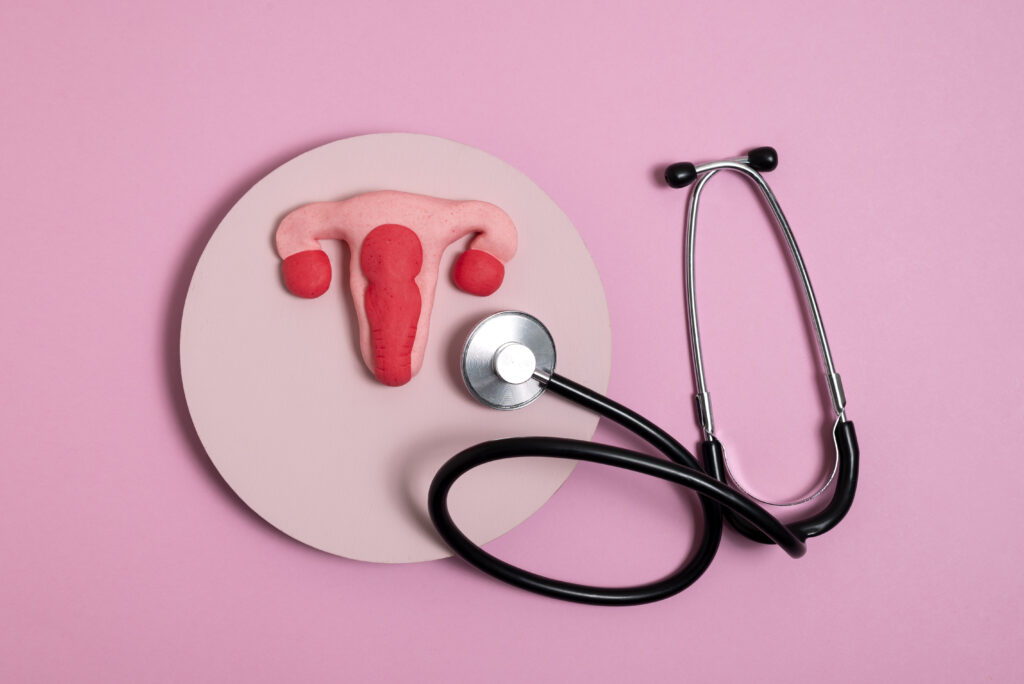Gynecologist Meaning in Hindi – कब मिलें? Online Consultation Guide
महिलाओं की सेहत से जुड़ी समस्याएँ अक्सर संकोच, जानकारी की कमी या सही डॉक्टर तक समय पर न पहुँच पाने की वजह से बढ़ जाती हैं। इसलिए सबसे पहले यह समझना जरूरी है कि Gynecologist Meaning in Hindi क्या होता है और यह डॉक्टर महिलाओं के लिए क्यों इतना महत्वपूर्ण है। इस विस्तृत गाइड में हम आसान भाषा में समझेंगे कि स्त्री रोग विशेषज्ञ क्या करते हैं, कब मिलना चाहिए, कौन-कौन सी समस्याओं का इलाज करते हैं, और आज के समय में online gynecologist consultation कितना फायदेमंद है। यह लेख खासतौर पर उन महिलाओं के लिए है जो सही जानकारी चाहती हैं और सुरक्षित तरीके से इलाज शुरू करना चाहती हैं। Gynecologist Meaning in Hindi – सरल शब्दों में समझें Gynecologist Meaning in Hindi होता है “स्त्री रोग विशेषज्ञ”।यह वह डॉक्टर होता है जो महिलाओं के प्रजनन तंत्र (Reproductive System) से जुड़ी बीमारियों, हार्मोनल समस्याओं, पीरियड्स की गड़बड़ी, गर्भावस्था, बांझपन (Infertility) और अन्य स्त्री रोगों का इलाज करता है। जब कोई महिला अनियमित पीरियड्स, पेट के निचले हिस्से में दर्द, असामान्य डिस्चार्ज या प्रेग्नेंसी से जुड़ी समस्या महसूस करती है, तो उसे स्त्री रोग विशेषज्ञ से परामर्श लेना चाहिए। Gynecologist क्या-क्या इलाज करते हैं? Gynecologist Meaning in Hindi समझने के बाद यह जानना जरूरी है कि ये डॉक्टर किन समस्याओं का इलाज करते हैं: यदि आपको इन में से कोई भी समस्या है, तो देरी न करें। समय पर सही इलाज से जटिलताएँ रोकी जा सकती हैं। ALSO READ —- PCOD Problem Symptoms: Clear Difference Between PCOS and PCO Obstetrician और Gynecologist में क्या अंतर है? कई लोग कन्फ्यूज हो जाते हैं।जब हम Gynecologist Meaning in Hindi की बात करते हैं, तो यह सामान्य स्त्री रोगों से संबंधित होता है। जबकि Obstetrician गर्भावस्था और डिलीवरी से संबंधित मामलों को संभालते हैं। हालांकि अधिकांश डॉक्टर Obstetrics and Gynaecology दोनों में प्रशिक्षित होते हैं। इसलिए यदि आप “obstetrics and gynaecology near me” सर्च करती हैं, तो आपको ऐसे विशेषज्ञ मिलेंगे जो गर्भावस्था और स्त्री रोग दोनों संभाल सकते हैं। कब मिलें Gynecologist से? यह सवाल सबसे महत्वपूर्ण है। Gynecologist Meaning in Hindi समझने के बाद आपको यह जानना चाहिए कि कब तुरंत डॉक्टर से मिलना जरूरी है: समस्या छोटी लगे तब भी नजरअंदाज न करें। Online Gynecologist Consultation – क्या यह सुरक्षित है? आज के डिजिटल दौर में online gynecologist consultation एक सुरक्षित और सुविधाजनक विकल्प बन चुका है। इसके फायदे: अगर आपकी समस्या शुरुआती स्टेज में है, तो ऑनलाइन कंसल्टेशन से शुरुआत की जा सकती है। लेकिन गंभीर मामलों में फिजिकल जांच जरूरी होती है। Nearest Gynecologist Doctor कैसे ढूंढें? जब भी आप “nearest gynecologist doctor” सर्च करती हैं, तो ध्यान रखें: सिर्फ दूरी देखकर निर्णय न लें। क्वालिटी और अनुभव ज्यादा महत्वपूर्ण हैं। Nearby Gynecologist Hospital चुनते समय क्या देखें? “nearby gynecologist hospital” चुनते समय: एक भरोसेमंद अस्पताल आपकी सेहत और भविष्य दोनों सुरक्षित रखता है। IVF और Gynecology का संबंध जब दंपत्ति लंबे समय तक गर्भधारण नहीं कर पाते, तो Gynecologist जांच शुरू करते हैं।अगर जरूरत पड़े, तो IVF (In Vitro Fertilization) का सुझाव दिया जाता है। इसलिए Gynecologist Meaning in Hindi सिर्फ पीरियड्स तक सीमित नहीं है — यह आपकी पूरी प्रजनन सेहत से जुड़ा है। Jaipur में अनुभवी विशेषज्ञ की जरूरत क्यों? अगर आप जयपुर में हैं और स्त्री रोग विशेषज्ञ ढूंढ रही हैं, तो अनुभव बेहद जरूरी है।Dr. Mamta Gupta – Srishti IVF Hospital Jaipur में वर्षों का अनुभव रखती हैं और महिलाओं की जटिल समस्याओं का सुरक्षित इलाज करती हैं। यहाँ आधुनिक तकनीक, IVF सुविधा और व्यक्तिगत देखभाल उपलब्ध है। पहली विज़िट में क्या होता है? डरने की जरूरत नहीं है। यह एक सामान्य और सुरक्षित प्रक्रिया है। Frequently Asked Questions (FAQ) 1. Gynecologist Meaning in Hindi क्या है? स्त्री रोग विशेषज्ञ – जो महिलाओं की प्रजनन और हार्मोन से जुड़ी समस्याओं का इलाज करता है। 2. क्या ऑनलाइन कंसल्टेशन पर्याप्त है? शुरुआती सलाह के लिए हाँ, लेकिन गंभीर समस्या में फिजिकल जांच जरूरी है। 3. कितनी उम्र में पहली बार Gynecologist से मिलना चाहिए? जब पीरियड शुरू हों या कोई समस्या हो। 4. क्या IVF हर किसी के लिए जरूरी है? नहीं, पहले जांच और सामान्य उपचार किए जाते हैं। Conclusion अब आप समझ चुकी हैं कि Gynecologist Meaning in Hindi सिर्फ एक शब्द का अर्थ नहीं बल्कि महिलाओं की संपूर्ण सेहत से जुड़ा विषय है। समय पर सही विशेषज्ञ से मिलना, जरूरत पड़ने पर online gynecologist consultation लेना और भरोसेमंद अस्पताल चुनना बेहद जरूरी है। अगर आप जयपुर में हैं, तो Srishti IVF Hospital Jaipur में विशेषज्ञ परामर्श और आधुनिक उपचार उपलब्ध है। follow us on Instagram and on Facebook
Gynecologist Meaning in Hindi – कब मिलें? Online Consultation Guide Read More »






